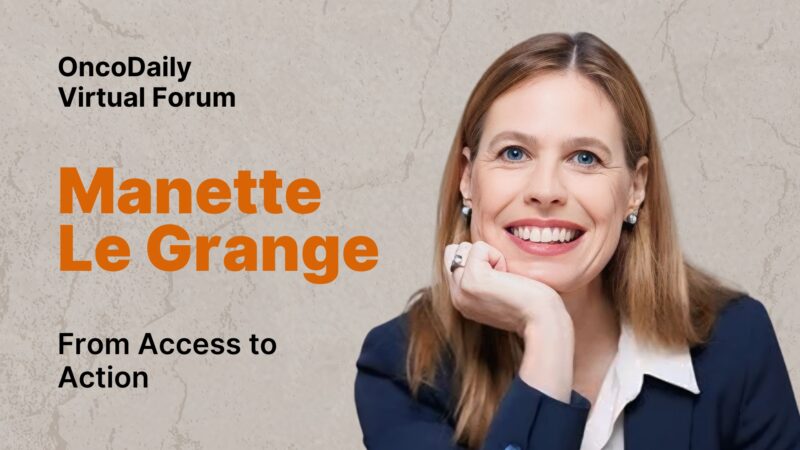Arnaud Lallouette, Executive Vice President Global Medical and Patient Affairs at Servier, shared a post on LinkedIn:
“The disparity in childhood cancer outcomes is one of the world’s most significant inequities.
While over 80% of children with cancer in high-income countries are cured, this number drops to less than 30% in low- and middle-income countries. This gap isn’t due to a lack of potential cures but rather unequal access to resources, treatments, and care.
Read our latest opinion paper on tackling this issue and learn about the Access Cancer Treatment (ACT) for Children initiative, a powerful example of what can happen when diverse efforts unite toward a common goal.
ACT for Children: A Global Initiative to Tackle Inequities in Pediatric Cancer
The disparity in childhood cancer outcomes is one of the world’s most significant inequities. Over 80% of children with cancer in high-income countries are cured, but this number drops to less than 30% in low- and middle-income countries. This gap isn’t caused by the lack of a potential cure, but by the unequal access to the resources, treatments, and care that can make all the difference.
In order to address this disparity, we must rely on collaborative efforts to ensure children receive quality medical care and support, and it all begins with a commitment from the pharmaceutical industry to provide life-saving medications.
Drivers of Disparities
Healthcare providers at childhood cancer centers in low- and middle-income countries often open their medicine cabinets to find them empty. This lack of access to essential medicines drives a cascade of deficiencies in quality medical care, including limited diagnostic capabilities, substandard treatments, inadequate patient support, insufficient education and training, and a scarcity of data to guide policy and investment.
Furthermore, childhood cancer is a rare disease and requires specialized medical care, but such specialized centers are rarely found in low- and middle-income settings – with childhood cancer being managed in general wards or not at all. These issues exacerbate the systemic challenges that have persisted for years in these regions.
How to Approach these Challenges
The pharmaceutical industry must carefully consider and take appropriate action to create access to innovative, high-quality medicines, laying the foundation for a more comprehensive approach to tackle this disparity. When these medications are available it prompts interest in medical education, driving demand for training programs, patient support initiatives, and more advanced diagnostic protocols.
At the same time, children receiving treatment contribute valuable insights that inform policy decisions and help secure funding for expanded interventions. Lack of access to curative medicines also leads to an influx of counterfeit and poor-quality medicines into hospitals, exacerbating patient outcomes. Addressing this issue is difficult to resolve, as it requires verifying poor-quality medications and tracking down counterfeit treatments.
Turning Solutions into Action
Last February, Servier and a dedicated group of partners launched the Access Cancer Treatment (ACT) for Children initiative, a pragmatic, hospital-focused approach, working to ensure that every child diagnosed with cancer has the support and access they need to overcome barriers to treatment and achieve the best possible outcome. We’re proud to join forces with Childhood Cancer International, IDA Foundation, International Society for Paediatric Oncology – SIOP, Resonance, and World Child Cancer USA to turn our vision of a world without disparities in childhood cancer care into reality. We are also operating in close partnership with the Union for International Cancer Control (UICC)-led Access to Oncology Medicines (ATOM) Coalition.
ACT for Children focuses on the entire ecosystem required for survival, access to quality-assured and innovative medicines, encompassing accurate and timely diagnoses, skilled healthcare professionals delivering expert care, supportive services and proper nutrition, and a strengthened health system to ensure long-term sustainability. Rather than relying on a broad, one-size-fits-all strategy, this initiative works directly with hospitals treating children with cancer.
The hospital-to-hospital model ensures that solutions are tailored to local realities, resulting in measurable impact where it matters most. By embedding these solutions within hospital systems, ACT for Children guarantees that each intervention brings about tangible, lasting improvements in childhood cancer care.
Thanks to the collaborative partnership, ACT for Children has already made significant strides in just nine months. We’ve implemented key improvement strategies and delivered essential medicines at no cost to five childhood cancer centers in Guatemala, El Salvador, Honduras, Armenia, and Indonesia. Across these sites, child patients have received treatment, and over 450 healthcare providers have already completed in-person, hospital-based training programs to date.
This progress underscores the vital role of collaboration between the pharmaceutical industry, patient organizations, social workers, oncologists, and other key stakeholders. No single entity could achieve this on their own, and by tackling challenges from every angle and combining global resources with local expertise, transformative change becomes not only possible but inevitable.
The ACT for Children initiative is a powerful example of what can happen when diverse efforts unite toward a common goal. Together, we are creating a lasting impact on childhood cancer care and outcomes, and we’re just getting started.
The road ahead is long, but with continued collaboration and commitment, a world without disparities in childhood cancer care is within our reach.”
Read OncoDaily’s Special Article: “Servier’s Manette Le Grange on ACT4Children and Public-Private Collaboration”



